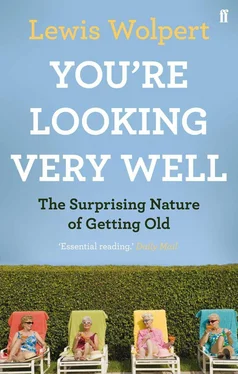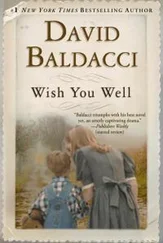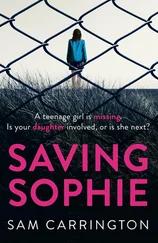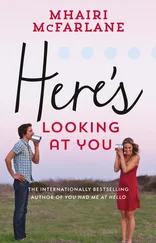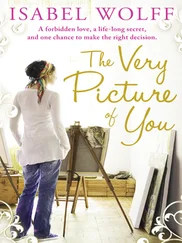One observer notes: ‘Retirement is impossible at any age.’ The old are less useful in societies characterised by collecting, hunting and perhaps fishing, as these are not skills they any longer have. For the old without children or wealth everywhere, times can be hard.
‘All diseases run into one, old age’
— Ralph Waldo Emerson
The hieroglyphic for ‘old’ in ancient Egypt in 2800 BC was a bent person leaning on a staff—perhaps the first depiction of the ravages of osteoporosis. Like all humans, our ancestors wanted to know the cause of the things that affected them, and so it was with ageing. They were also looking for ways to prevent it. Different from the legends about immortality, which will be discussed later, were the theories as to why ageing occurred and how to avoid it, and these go back a long time. Originally it was the function of religious beliefs to provide such explanations. Eventually such enquiries led to the true study of ageing and how it might be treated—geriatrics.
As long ago as 1550 BC the Ebers papyrus from Egypt, one of the oldest preserved medical documents, suggested that debility through senile decay is due to accumulation of pus in the heart. This is probably the first non-religious explanation of ageing. The Taoists in ancient China believed that ageing was due to the loss of some vital principle which they equated with the loss of semen in men, and thus taught secret techniques by which men could have an orgasm without ejaculation. Such men, they claimed, would age much less. Plus, if you learned to undertake effortless action, take vital breaths and eat magical foods such as ginseng, you could also slow down the ageing process. In Ayurvedic medicine in India the ancient sage Maharishi Chyavana propounded his idea of anti-ageing therapy. When the Maharishi was bogged down by old age and low energy levels he started taking chyavanaprasha, an astonishing tonic and anti-ageing medicine, and claimed he soon found himself on the road to complete recovery. Gooseberry is the main constituent of this tonic.
Around 400 BC, medicine in Greece was steeped in religious belief. Illness and ageing would automatically be attributed to the activities of gods or demons. But some of the earliest non-mystical explanations for ageing also came from the Greeks. The ‘father’ of medicine, Hippocrates, instead of ascribing diseases to divine origins, discussed their physical causes. He believed that certain diseases afflicted certain ages. His theory was that ageing was due to loss of heat and moisture. Aristotle, who had a very negative view of the old, perceived the aged body as dry and cold, and also thought that old age was due to the diminishing of heat in the body, as heat was the essence of life generated by the heart. Galen, for whom old age was due to the dry and cold constitution of the body, recommended that the old should take hot baths, drink wine and be active. For Galen old age is not a disease, and is not contrary to nature. For St Augustine, some 800 years later, illness and ageing were the result of Adam and Eve being driven out of the Garden of Eden.
It must be remembered that there was no chance in those times of acquiring any scientific understanding of ageing, as it was only some two thousand years later, in the nineteenth century, that it was at last discovered that the body was made of cells. Darwin’s theory of evolution was also of great importance, as we shall see.
The Arabic philosopher Avicenna (981–1037) followed Galen and saw no way to prevent the drying out that caused old age. The Canon of Medicine , written by Avicenna in 1025, was the first book to offer instruction for the care of the aged, foreshadowing modern gerontology and geriatrics. In a chapter entitled ‘Regimen of Old Age’, Avicenna was concerned with how ‘old folk need plenty of sleep’, how their bodies should be anointed with oil, and recommended exercises such as walking or horse-riding. One thesis of the Canon discussed the diet suitable for old people, and dedicated several sections to elderly patients who become constipated. The Arabic physician Ibn Al-Jazzar ( c .898–980), also wrote a special book on the medicine and health of the elderly.
Roger Bacon ( c .1214–94), a Franciscan friar, was the first to propose a scientific programme of epidemiological investigations into the longevity of people living in different places, and under different conditions. He also noted that the pursuit of knowledge depended on ‘the fresh examination of particulars’, and that there needed to be a systematic observation of nature. He wrote a book on ageing in which he suggested that old age could be warded off by eating a controlled diet, proper rest, exercise, moderation in lifestyle and good hygiene. So far so good, but he also suggested inhaling the breath of a young virgin. Following a common theme in those times, that ageing was the result of the loss of some vital material, Bacon claimed that the breath of young virgins could replenish the loss of this vital essence. This belief most probably came from the biblical story of King David sleeping between two virgins when he was old to restore his youth, though not necessarily having sex. A young virgin could preserve a man’s youth because the heat and moisture of the young woman would transfer to the old man and revitalise him.
Roger Bacon also claimed that life could be extended and that Methusaleh was an example, that the neglect of hygiene shortened life, and some individuals had used secret arts to prolong their lives. One example was a farmer who drank a golden drink he found in the field and lived a long time, and this supported Bacon’s alchemical convictions. In Italy, in the mid-sixteenth century, Alvise Cornaro said that life could be extended by eating less as it used up less innate moisture, and it was necessary to keep the four humours that had been the basis of Greek medicine—blood, phlegm, yellow bile and black bile—nicely balanced. There was still no serious science of ageing.
It was Francis Bacon, a key promoter of the renaissance of science and author of The History of Life and Death (1638), who first proposed a study of ageing in order to find out its causes and how to prevent it. He was the first to acknowledge the prolongation of life as an aim of medicine. He argued that ageing was a complex process, yet capable of remediation, but ‘It is natural to die as to be born.’ He did not believe that old age was due to a loss of some vital substance. He made little progress, but he did recommended exercise. He also apparently had a light touch: ‘I will never be an old man. To me, old age is always 15 years older than I am.’ There is a story that while travelling in a coach towards Highgate in London he concluded that cold might prevent ageing. He tried the experiment at once, stopped the coach, bought a hen, and stuffed its body with snow. But the cold affected him and he died a few days later. His interest in ageing was an important stimulus to its being studied by others.
Dr George Cheyne, an eighteenth-century doctor, believed the English were dying due to an excess of comfort, wealth, and luxury—the ‘English Malady’—and that the way to prevent ageing was by eating only enough food to allow the body to maintain its heat. A little later the German physician Hufeland argued that fast living led to short living, that you should drink no alcohol, chew your food deliberately, and be positive. He stated: ‘We frequently find a very advanced old age amongst men who from youth upwards have lived, for the most part, upon the vegetable diet, and, perhaps, have never tasted flesh.’ He accepted the view that at birth an individual was endowed with a finite amount of vitality and that this decreased with age.
Читать дальше
